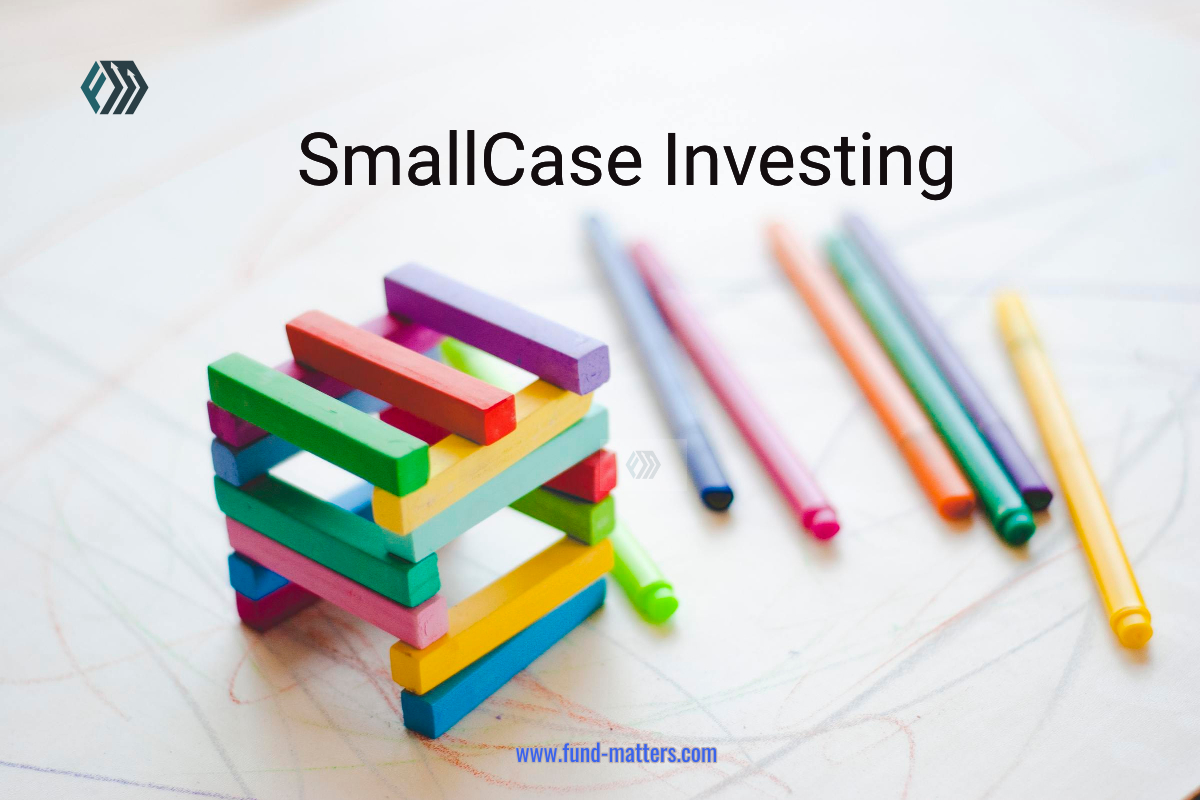Smallcase Investing- Things to know


What is Smallcase Investing?
Smallcases are portfolios of stocks or ETFs, weighted intelligently to track a theme, strategy or objective. One can invest in the market either by buying individual stocks or by investing in equity mutual funds or exchange traded funds or through Portfolio Management Services (PMS).
Brokerages are now offering to investors, another alternative called Smallcase – a chance to buy an entire portfolio of stocks, built around a curated theme or strategy, in one shot.
Smallcase platform in India
Based on a platform created by Bengaluru based Smallcase Technologies, this avenue allows investors to take exposure to professionally researched, diversified theme-based portfolios with their existing trading and demat accounts.
Seven brokers are offering this platform at present, including HDFC Securities, Kotak Securities, Edelweiss, 5paisa, Axis Securities and Zerodha. The underlying securities are held in the demat account and investors have complete control as the Smallcases are integrated into demat account.
How it works?
Smallcase is like a poor man’s/low cost PMS, a standardized PMS based on themes which requires low investment.
First, access the Smallcase platform offered by the broker. Next, choose a theme of your liking – Rural Consumption or Digital India or India Reforms.
You can see what stocks make up the portfolio of selected theme and in what proportion and the investment rationale. You can customize the Smallcase, by adding or removing some stocks from the recommended portfolio.
For instance, if you are keen to build a portfolio of companies benefiting from rural consumption, you can invest in the “Rising Rural Demand Smallcase”, a ready-made portfolio of around 15 stocks that derive a chunk of revenues or volumes from the hinterland. Brokers charge a one-time fee of Rs. 100 when you first invest in a Smallcase. The transaction also attracts the usual brokerage charges.
Why you should go the Smallcase route:
Investment in equity funds attracts expense ratio that includes fund management, distributor’s commission and other expenses. This expense ratio is annually deducted from your investment in the equity fund and roughly equates to 1 to 1.5 percent of the investment. In comparison, you pay only brokerage for Smallcases. Smallcases charge no extra investment fee.
While investment in mutual funds gets you fund units, Smallcase investment puts shares in your demat account. This is beneficial as the investors can get tax free dividend from shares, but fund units reinvest such dividend received. Smallcase enables you to invest in ideas rather than in stocks.
SEBI move gives an impetus to Smallcase
With a view to keep retail investors away from portfolio management schemes (PMS), Securities and Exchange Board of India (SEBI) has recently decided to double the minimum investment amount for clients in PMS schemes from Rs 25 lakh to Rs 50 lakh. This move has given an impetus to fresh alternatives for small investors like Smallcase.
Drawbacks of Smallcase investing
PMS is not a theme based portfolio. PMS can be either discretionary or non-discretionary, but the portfolio of stocks are handpicked by the PMS fund manager from the entire universe of stocks.
However, Smallcase being thematic in nature, this avenue is more suited to savvy investors who can keep track of trends and understand the underlying themes. “The focused exposure to a theme, even through a diversified basket of stocks, can backfire if the theme doesn’t play out as expected,” caution experts.



